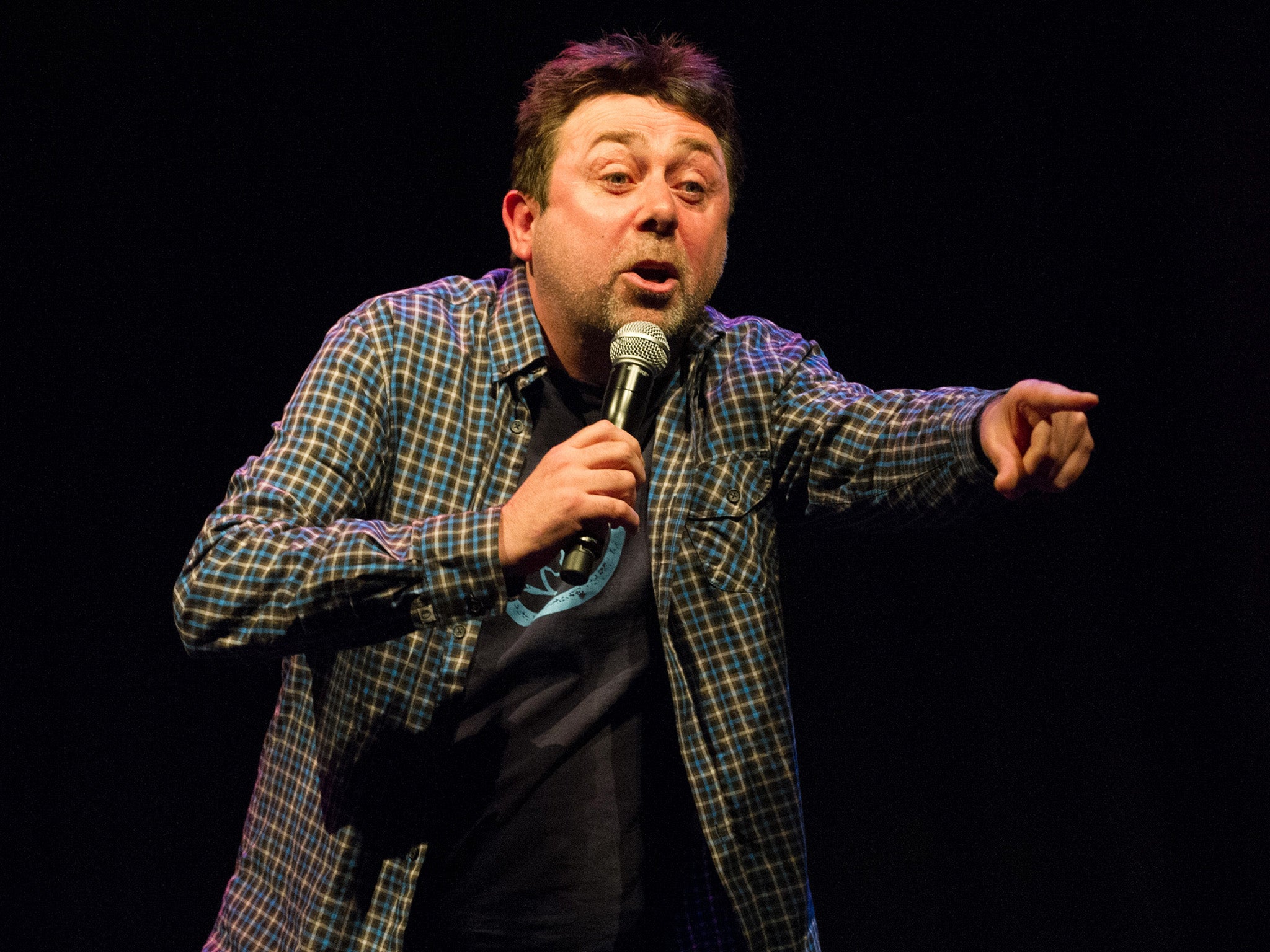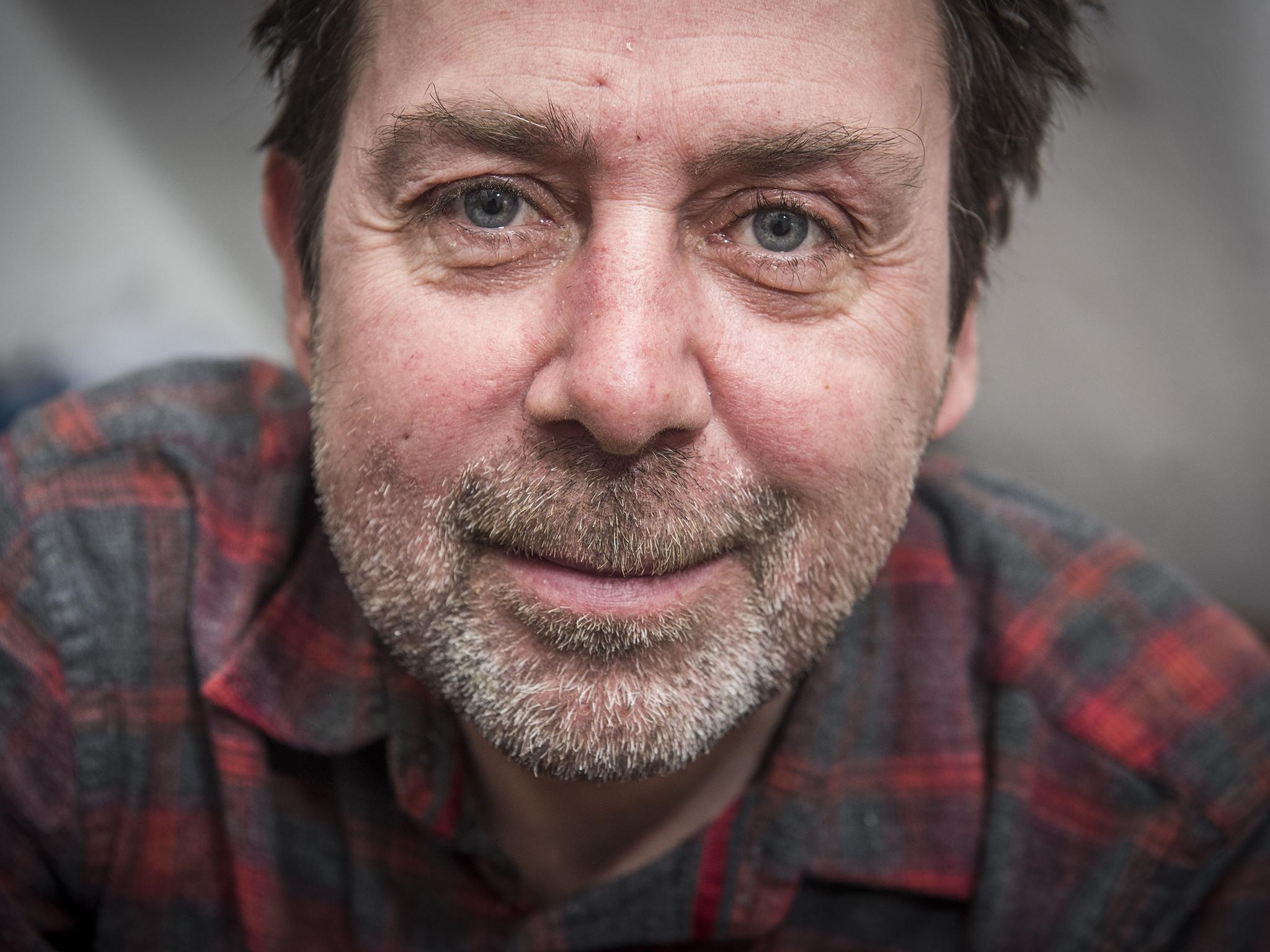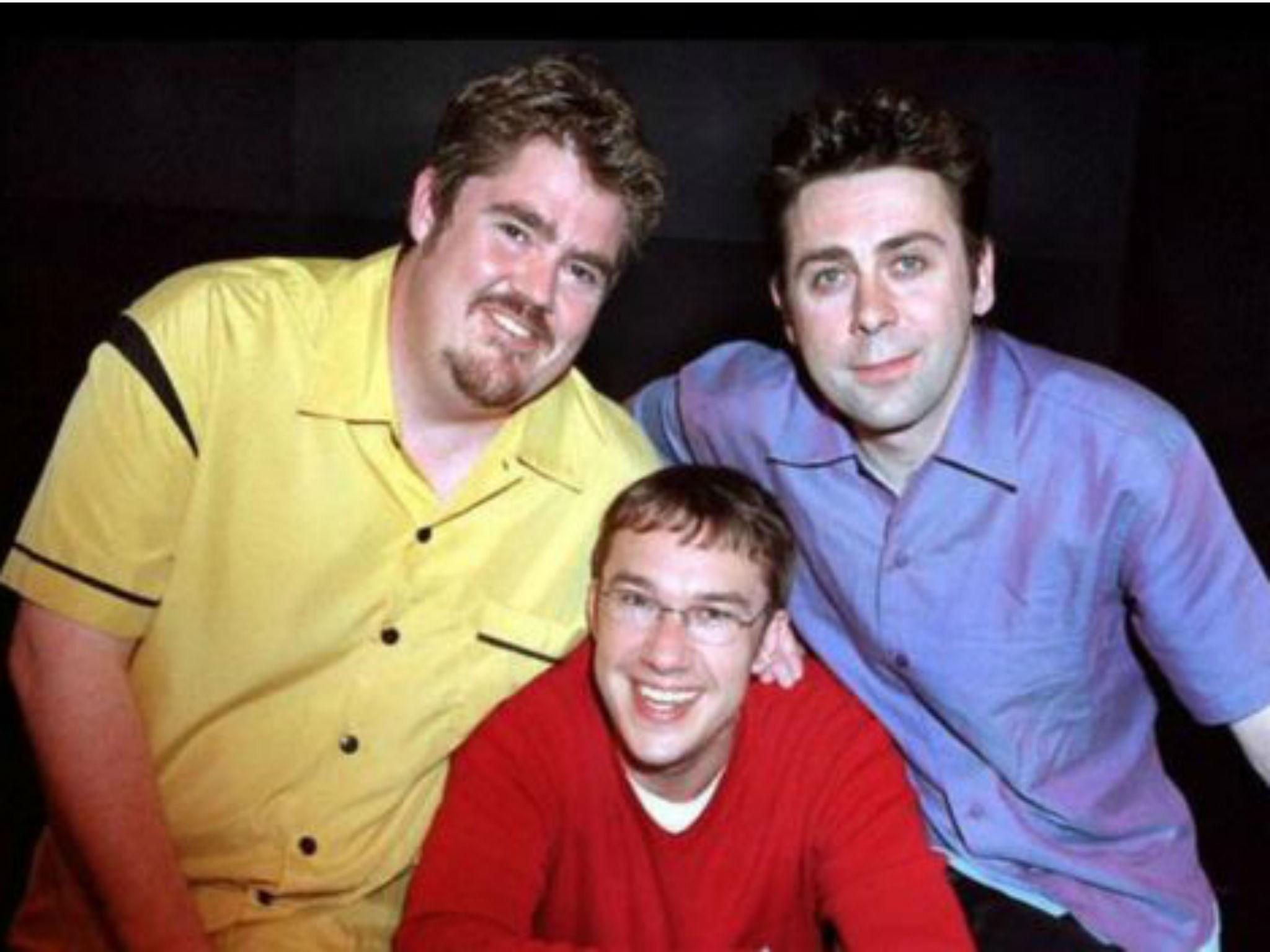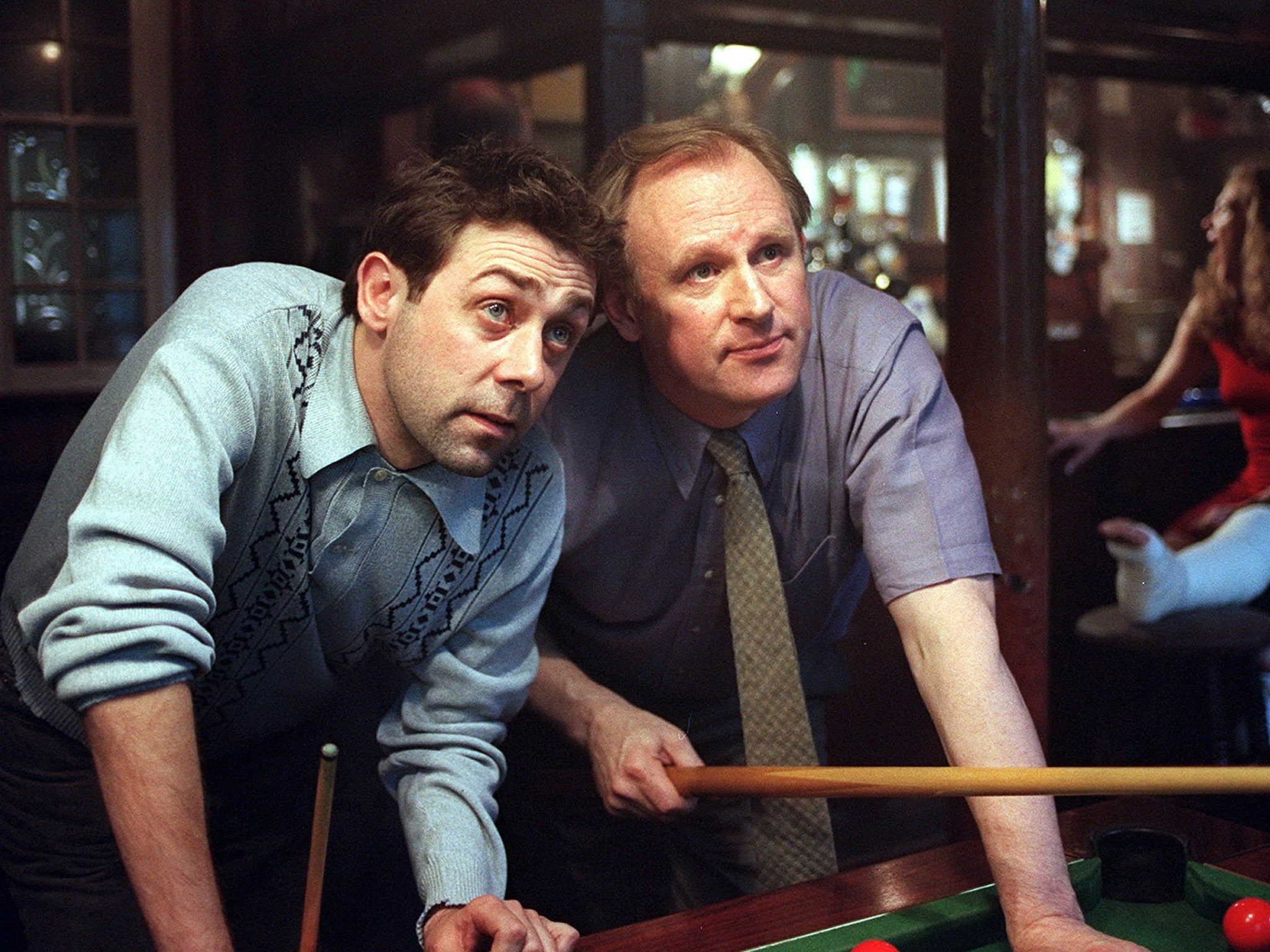Sean Hughes managed to find the serious in the silly
The 'Never Mind the Buzzcocks' regular had a wit and a mischievous air about him, but it is as a stand-up that he will be most fondly recalled

Your support helps us to tell the story
From reproductive rights to climate change to Big Tech, The Independent is on the ground when the story is developing. Whether it's investigating the financials of Elon Musk's pro-Trump PAC or producing our latest documentary, 'The A Word', which shines a light on the American women fighting for reproductive rights, we know how important it is to parse out the facts from the messaging.
At such a critical moment in US history, we need reporters on the ground. Your donation allows us to keep sending journalists to speak to both sides of the story.
The Independent is trusted by Americans across the entire political spectrum. And unlike many other quality news outlets, we choose not to lock Americans out of our reporting and analysis with paywalls. We believe quality journalism should be available to everyone, paid for by those who can afford it.
Your support makes all the difference.Comedy may often appear to have a shiny surface, but there was always something more profound lurking beneath it in the work of Sean Hughes. And that’s what made him so special. With him, there was darkness visible.
On a circuit where many cocksure stand-ups made a name for themselves regaling us with jokes about laddish nights out and epic “bants”, Hughes always tried to delve deeper. An avowed fan of Samuel Beckett and Seamus Heaney who strove to write novels in the style of Milan Kundera, he managed to find the serious in the silly.
Hughes, who was born in Archway, north London, but brought up in Dublin, mined a particularly rich seam of comic self-effacement. He would joke that when you are sitting at home pretending all is right with the world, “you’re actually feeling that lonely that you check to see that the telephone’s working”.
First cracked in 1990, one of his most memorable self-deprecating gags still stands up today: “I’m not into one-night stands ... I can’t take that level of commitment.”

In 1990 he burst like a shambling, stubbly star into the world of stand-up and became, at the age of just 24, the youngest-ever winner of the Perrier Comedy Award at the Edinburgh Festival with his delightful, ground-breaking show, A One Night Stand with Sean Hughes.
Later on, Hughes was able to parlay the fact that he was never likely to opt for cosy, conventional domesticity into typically self-aware comedy. “I thought when I was 41, I would be married with kids,” he would deadpan. “Well, to be honest, I thought I would be married with weekend access.”
Hughes also possessed the uncanny ability to make light of his own physical frailties. “I went to the hospital with my psoriasis,” he joked. “They gave me a DVD of The Singing Detective and said, ‘Good luck with your life’.”
Karen Koren, Hughes’s long-term producer at the Gilded Balloon in Edinburgh, once told me she really enjoyed the pathos he could project in his act. “He does the full circle of comedy,” she said. “When you go to the theatre, you want to laugh, cry and experience all the emotions. That’s what you get from Sean.”
But having seen him perform many times over the years, I can also attest that he was stand-up blessed with a playfulness not given to many comedians. He was one of very few performers capable of eliciting huge laughs simply from the way he said “hiya” or “bye bye.”

Like his near-contemporaries, Reeves and Mortimer and Eddie Izzard, Hughes was also drawn to surreal humour. There can’t be many other comics who could trigger a massive guffaw by singing a duet with a spider.
In the same vein, Hughes eschewed standard punchlines – he said he never got the hang of delivering orthodox jokes and much preferred rambling stories.
This playfulness is a trait highlighted by many of his peers. Al Murray, who is of a similar vintage, said: “Sean Hughes won the Perrier the summer I decided to try being a comic. He was being daft, meta, ironic and Byronic all at once.”
Away from stand-up, Hughes was best-known as one of the original trio of regulars (alongside Phill Jupitus and Mark Lamarr) on BBC2’s long-running comedy pop quiz Never Mind the Buzzcocks.
Hughes was a team captain between 1996 and 2002, and his impish persona worked brilliantly in that arena. As the late Harry Thompson, co-producer of Buzzcocks, once told me, “Sean manages to be engaging, but subversive at the same time. He has wit and a mischievous air about him. He comes across as smart, knowledgeable and very natural.”
Hughes was a complex and intelligent man, but not everything went smoothly for him. His novels, for instance, were not always well-received. But he told me he didn’t care what critics thought. “Reviews don’t trouble me,” he asserted. “People give critics too much importance.

“Just because there are a few stand-ups writing novels, reviewers think it’s like stand-ups are gate-crashing the party. `They’re just comedians – how low can you get?’ But we write lines – it’s inevitable that a lot of comedians will write novels because it’s a larger canvas.”
Hughes was also an accomplished actor in dramas such as The Last Detective and The Commitments. But it is as a stand-up that he will be most fondly recalled.
On stage, Hughes would like to toy with the image of the weed who has sand kicked in his face on the beach. And having interviewed him on several occasions, I would say that this schtick – a likable sense of vulnerability – most closely matched his off-stage personality. He was a lovable if bruised character, on and offstage.
Anyone who ever came into contact with the playful, self-deprecating, Hughes will today be remembering him with a smile of great warmth.
As Murray said: “Sean made stand-up look fun, glamorous and above all a creative place where you could play.”
Join our commenting forum
Join thought-provoking conversations, follow other Independent readers and see their replies
Comments